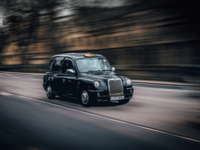If you're applying to become a taxi driver in the UK, either as a private hire or hackney carriage driver, one of the key legal steps in the licensing process is undergoing a DBS check for taxi drivers. Local authorities are required to assess your suitability and safety as a driver, particularly because you'll be responsible for transporting members of the public—including potentially vulnerable individuals.
Here’s everything you need to know about why a DBS check is required, how it works, and what to expect.
Why Is a DBS Check Required for Taxi Drivers?
Taxi drivers are placed in a position of trust, often working alone and transporting passengers they do not know. This is especially significant when transporting children, elderly individuals, or those with disabilities.
To help ensure passenger safety, the government requires all local licensing authorities in England and Wales to request an Enhanced DBS check with barred lists as part of the driver licensing process. This allows the council to check for any previous criminal convictions or safeguarding concerns before granting or renewing a taxi licence.
What Level of DBS Check Is Required?
Taxi drivers must undergo an Enhanced DBS check, the highest level available. This will reveal:
-
Spent and unspent convictions
-
Cautions, warnings, and reprimands
-
Relevant information held by local police
-
Whether the applicant is barred from working with children or vulnerable adults (depending on the licensing authority’s requirements)
Each licensing authority may have slightly different policies, but most councils follow guidance provided by the Department for Transport and the Disclosure and Barring Service (DBS).
How Often Do You Need a DBS Check?
Taxi drivers are usually required to complete a DBS check every 3 years as part of the licence renewal process. Some local authorities may request it more frequently, depending on their own safeguarding policies.
To streamline the process, many drivers opt to register with the DBS Update Service. This allows your DBS certificate to be kept up to date and checked online by the council at renewal, without needing to complete a new application every time.
What Happens If You Have a Criminal Record?
Having a criminal record does not automatically mean your application will be refused. Each case is assessed on its own merits. Authorities will look at:
-
The seriousness and relevance of the offence
-
How long ago it happened
-
Evidence of rehabilitation
-
Any pattern of behaviour
Some convictions, especially those involving violence, drugs, or sexual offences, may disqualify a person from obtaining a taxi licence.
Apply for a DBS Check with CRB Direct
At CRBDirect.org.uk, we help individuals and employers apply for fast, secure DBS checks. If you’re applying for a taxi licence, we can guide you through the Enhanced DBS process to meet your local authority’s requirements.





